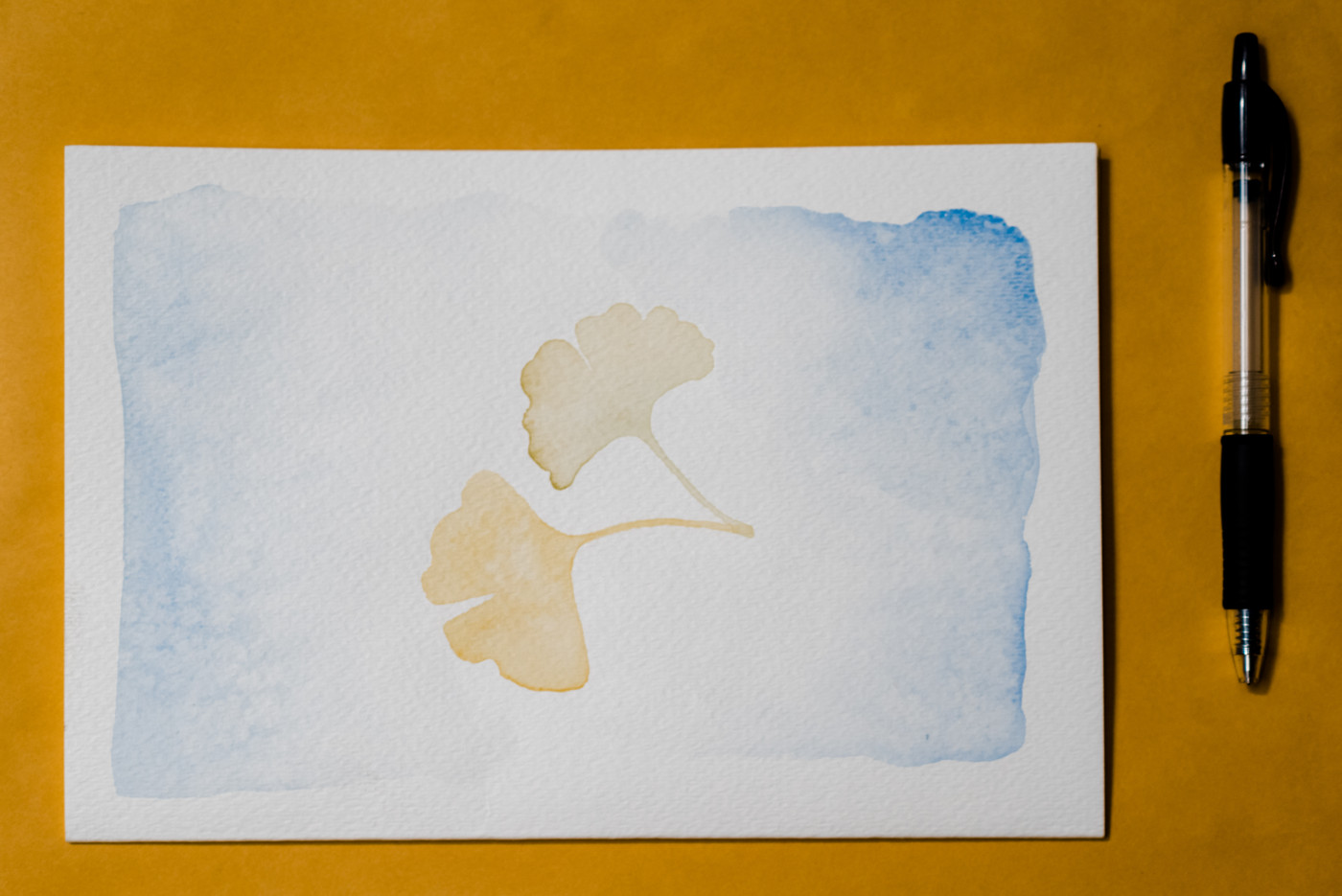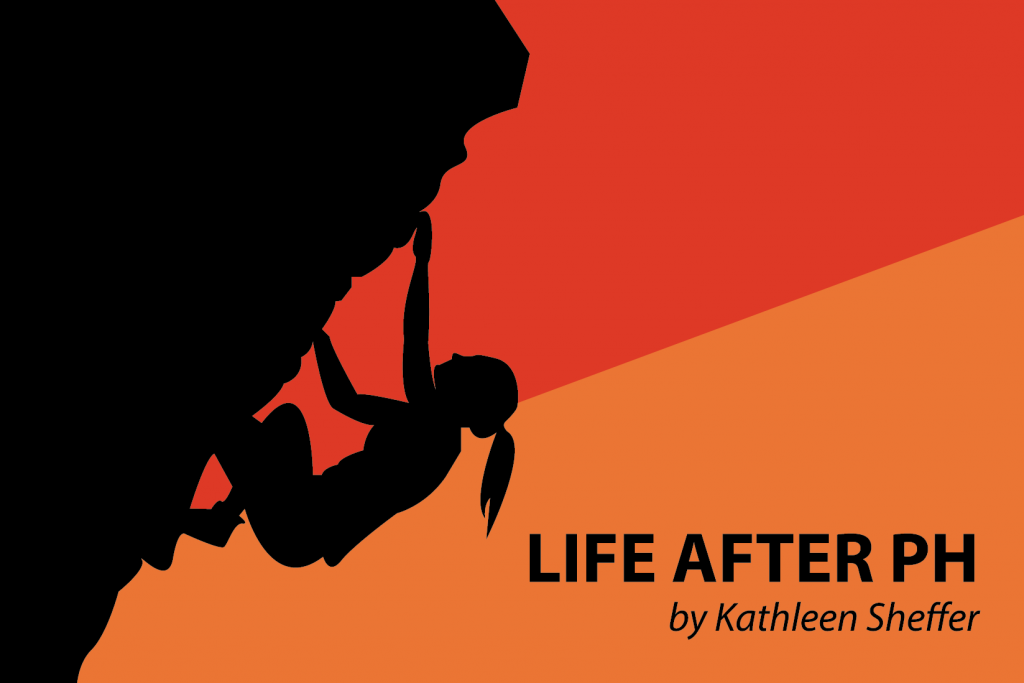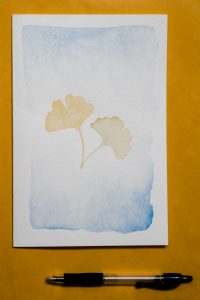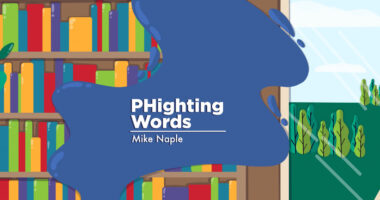Offering Written Thanks to My Donor’s Family

Card for donor family. (Photo by Kathleen Sheffer)
For months, I agonized over how to offer my condolences to people I’d never met for a loss about which I had no details. I imagined different situations. How different it might be for a parent to receive the letter, compared to a child or a sibling. Because organ donation is an anonymous process, my doctors gave me no information about my donor after my transplant ― not gender, not age and certainly not cause of death. My social worker told me I could write a letter to the family of my organ donor and I might be able to learn more about my donor if someone responded.
After reading a few sample letters other recipients had shared online, I decided all I could do was write about myself. Thinking the letter’s recipient(s) would want to know who I was and how I was doing, I described my life before the transplant, and why I needed a new heart and lungs. I wrote about how my life has changed since my operation, and my goals for the future. I thanked them for saving my life.
With my 24th birthday in mind as a soft deadline for my letter, I delivered a hand-painted watercolor card filled with my best condensed handwriting to my social worker near the end of April. A weight lifted when I had finished, as if I’d just turned in a final paper. Now, when people asked if I knew anything about my donor, I could say I had taken steps toward knowing more.
In July, after celebrating a full year with transplanted organs, my thoughts returned to the letter. I’d heard I would be notified if and when the letter was delivered to my donor family. On a whim, I emailed Donor Network West, the organ procurement organization involved in my case, to check for an update. A call the next morning informed me the organization had not received any correspondence from me. To my dismay, the letter was lost, adding another item to my list of disappointments in my transplant team. I wrote again, this time in an email, promising future handmade cards. Still nothing.
I believe it’s important that my donor family knows how often I think about them and my donor, and how hard I work to care for their gift. As I return to a routine that isn’t entirely dictated by my health, I can see more friends, some of whom I lost touch with while in the throes of medical drama. At coffee with a friend from college, I was taken aback when she asked if I feel better now than I did before my transplant. Admittedly, she doesn’t know much about pulmonary hypertension, and I was pretty good at hiding my symptoms when we lived together.
When my team was listing me and I was forcing myself to picture best-case outcomes, I didn’t imagine the life I have now. My transplant changed my life in truly unimaginable ways. I not only can breathe easier, but my whole circulatory system is healthy now! I’m thriving, and I want my donor family, in addition to my family and friends, to grasp just how transformative this has been.
With the holidays approaching, I am writing again. I delight in celebrating birthdays and other occasions with my family, but recognize the inherent unfairness. My donor family spends their holidays without the person who saved my life. I know that I didn’t cause or hasten my organ donor’s death, and that putting their gift to use is the one thing I can do to help some good come out of their loss. Still, I understand that their family might not be ready to rejoice with mine.
It was surprisingly painful for me to write my first thank-you letter, and I went through several drafts. I had to reflect on my life with PH and how close to death it brought me, in addition to empathizing with my donor family’s grief. I cried a lot more than I ever expected I’d cry while writing a thank-you card. Everyone has to go at their own pace, but I encourage other recipients to start writing as soon as possible.
Even though my donor family has not responded, writing to them has brought me closer to closure. The act of describing one’s life before and after transplant is an important step in processing the amorphous mass of emotions involved.
Some of the resources that helped me write my donor family include guidelines from Gift of Life and from UNOS.
Sample thank you letters worth consulting include ones from the Los Angeles Times, Sharlie’s Angels Blog and Bob’s New Heart Blog.
***
Note: Pulmonary Hypertension News is strictly a news and information website about the disease. It does not provide medical advice, diagnosis, or treatment. This content is not intended to be a substitute for professional medical advice, diagnosis, or treatment. Always seek the advice of your physician or other qualified health provider with any questions you may have regarding a medical condition. Never disregard professional medical advice or delay in seeking it because of something you have read on this website. The opinions expressed in this column are not those of Pulmonary Hypertension News or its parent company, Bionews Services, and are intended to spark discussion about issues pertaining to pulmonary hypertension.










Andrea Rice
It's awesome that you were given this precious gift both heart and lungs at your young age. I 2, believe in donating organs especially if my pipes can help someone else live a better life.
I don't agree with you or anyone else hiding symptoms of what you suffer with because it's better 2 be crystal clear and upfront with people. Of course my symptoms are right in your face when people see me, the slow way I walk versus the way I used 2 walk, the slight tilt leaning towards one side when I walk is noticeable to anyone. And the multiple times I have 2 stop and rest in between walking to my destination is a big clue that something is going on with me. Nevertheless, if I'm asked questions which sometimes happens and sometimes it doesn't, I just calmly explain I have a chronic illness and this usually gets the other person 2 become silent. Usually people just accept this is how I am and go on with their own lives. We've become a society that is so filled with what is going on in our own lives that we rarely have time to care about another person.
I'm glad 2 read you reached out 2 the donor's family, this shows you want them 2 know how grateful you are, but also understand the donor's family may not want 2 respond 2 you because it reminds them of the person that was lost 2 them. People deal with death of a loved one in many different ways and some just completely avoid the subject altogether. The way I was brought up when someone died was 2 wear black clothes and attend the wake/funeral and talk 2 other relatives there as if I was at a family reunion. No mention of the person in the casket, no fond memories 2 remember, follow the line of people and take one last look at the person, say some prayers and your done. While some of the family were rude 2 talk about their lives as if bankrupt 4 serious attention from others, there were other family members sobbing with tears at the loss of this individual. I didn't sob nor did I have tears streaming down my face as some do, I just took everything in and accepted what I was experiencing. it wasn't until I started working as a CNA (certified nursing assistant) at a local nursing home that I came upon a family that was celebrating the life of the person they had lost drinks being passed around the room, clothes with bright colors not black, and there was no sobbing and tears from anyone. These people were celebrating the life of the person that lived and I remember thinking what a wonderful idea instead of being so sad as in my family. Needless 2 say I don't go 2 anymore wakes/funerals anymore in my family. I have chosen 2 remember their life and the relationship I had with them in the positive of ways. I don't shed any tears, my clothes aren't black and I enjoy the time spent remembering.
So, even though the donor family hasn't chosen 2 respond I'm glad 2 read you are getting closure from the letters you've written and made yourself. Quite creative and clever!! And it's probably good 2 reason that you won't take what comes your way 4 granted and choose 2 appreciate each and every moment of your new life without the chronic illness anymore.
I wish you the best in your new life and hopefully the rest of us that still suffer from the chronic illness have hope we can be candidates 2 receive transplants that can change our lives 4 the best 2.
Thanks 4 listening. If you have any opinions, please feel free 2 respond.